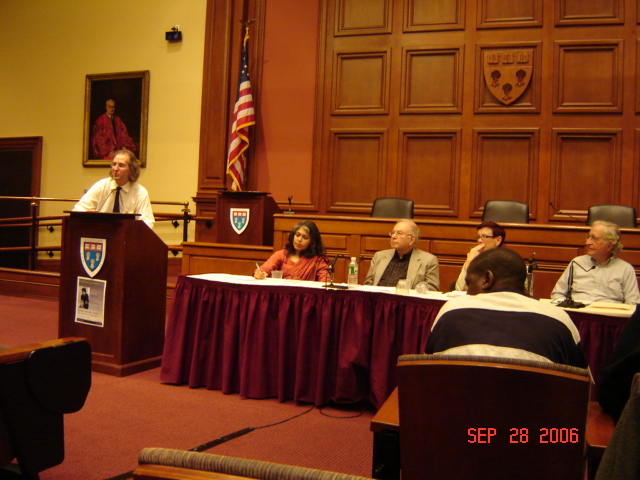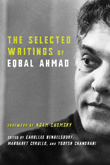
@salmaantaseer: I was under huge pressure sure 2 cow down b4 rightest pressure on blasphemy. Refused. Even if I'm the last man standing
I wrote this on Jan 5, 2010 for Tehelka (published today as ‘Salmaan Taseer’s death is liberal Pakistan’s loss‘), the day after Salmaan Taseer was gunned down in cold blood by his own bodyguard whose cowardly action of firing at the Governor’s back has deprived us of a man of courage and conviction, wit and wisdom. ST, you are not “the last man standing”.
Moving out of the downward spiral
Beena Sarwar
“There are no less than 24 groups as of now supporting Qadri on FB and 1 against what he did, that says it all. #salmaantaseer”.
So went a tweet from a fellow Pakistani early morning on Jan 5, the day after the assassination of Salmaan Taseer, the governor of Punjab who took a courageous stand against religious extremists in Pakistan.
The facebook pages cropping up don’t quite say it all. Facebook is usually quite slow to take action against pages that users consider abusive (unless they have to do with Israel). In this case, many of those pages (mostly started by young men who like western shows like Sex and the City, support Pervez Musharraf and say they follow Islam – any contradictions here?) were taken down within 24 hours – which means that enough people reported them as abusive.
When it comes to religion, there is confusion in people’s minds in Pakistan. This confusion has been building up over the years, particularly since America, Saudi Arabia, Pakistan and their allies took up cudgels against the Communist threat in Afghanistan and injected religion into the Afghans’ war of liberation against the Soviet invasion. Calling it a ‘jihad’ or a holy war enabled them to draw in Muslim fighters from around the world. The late Eqbal Ahmad warned against this long before the horrific events of 9/11 and US President Bush’s immature response sent the world into a downward spiral of violence, especially Pakistan, the frontline state in America’s war first against the Communists and then against extremist Islam.
The questions arising from Taseer’s assassination indicate that some forces in Pakistan are continuing along the old trajectory. The assassin, 26-year old Malik Hussain Qadri, was assigned to the elite force guarding the Punjab Governor. It now emerges that he had been removed from the Special Branch because he was perceived as a security threat – so how did he end up on the security detail of a Governor who was already receiving death threats?
According to the post-mortem, he fired 41 bullets into Taseer’s back while the Governor was getting into his car. He then threw down his weapon and raised his arms in surrender.
Standard operating procedures in VIP guard duty require the other guards to immediately open fire even if the assailant is one of them, explains my military analyst friend Ejaz Haider. So why did the other guards not follow the SOP?
Chillingly, Qadri has revealed that he had told his colleagues what he was going to do and asked them not to open fire, as he would surrender. Which means that he was confident of getting away with it.
“Now the judicial process will take over,” predicts Haider. “The judge/prosecutors will be threatened, and the murderer will be declared a hero.”
This is of course already happening, as the facebook pages show. Some of them have referred to him as a ‘ghazi’ (conqueror) and are justifying and glorifying his murderous act – including several religious organisations. In fact, some have gone so far as to say that because he was ‘guilty’ of ‘blasphemy’, no Muslim should lead or attend his funeral prayers.
Qadri’s smiling face was flashed on television channels, along with his comments that “Salmaan Taseer is a blasphemer and this is the punishment for a blasphemer”. He is reported to have told interrogators that the Governor had called the blasphemy laws ‘black’ and had defended Aasia Noreen, the Christian woman sentenced to death for ‘blasphemy’.
Taseer’s role in highlighting the Aasia Bibi case, as it came to be known, was significant although some have criticised his high-profile visit to her jail cell and his promise to obtain a presidential pardon for her, which circumvented due process. According to due process, the President’s pardon would have been sought after the Supreme Court confirmed the death sentence following the High Court’s confirmation of it.
The Pakistani state has not executed any blasphemy convicts because so far, the High Courts or the Supreme Court have acquitted those accused under this law (295-C, imposed by Gen. Ziaul Haq to add to 295-A that existed since British times). Yet the mere allegation of ‘blasphemy’ has been enough to incite the murder of over 30 people so far. Taseer’s is the most high profile such murder.
Given the current climate, it is unlikely to be the last. For things to significantly change, ‘deep state’ will have to change its policies of support for ‘jihadis’ and jihadi mind-sets.
Meanwhile, those who have been opposing the blasphemy laws and other injustices perpetuated in the name of religion will continue to protest, as they have been doing for decades.
(ends)
Filed under: Blasphemy Laws | Tagged: afghan war, blasphemy, ejaz haider, eqbal ahmad, Gen. Zia, mujahideen, Pakistan, salmaan taseer, Taliban | 5 Comments »












